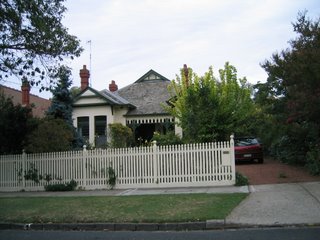 Changing literary priorities
Changing literary prioritiesBy 1922 only two percent (one article) of Frank Boreham’s writing in the Mercury was addressing issues of the day and a marked increase of editorials dealt with what he called “unchanging values”.[1] At this stage Boreham was no longer exercising leadership in Tasmania, a public role that had earlier bolstered his forthrightness in addressing current issues in his columns. Furthermore, writing from Melbourne increased his remoteness from the local issues in ‘the apple isle’. The dramatic increase in his published books which were enjoying popularity with an international readership appeared to be a factor in Boreham writing Mercury editorials that would neither date nor be parochial—editorials that could easily be transformed into essays for his books.[2] By 1936 (eight years into his retirement) this trend had increased with Boreham showing little interest in addressing current issues in his Mercury editorials. His new commission to write for the Literary Supplement of the Age affected his Mercury editorials with an increase of articles taking a literary theme.[3]
While such factors as his remoteness from Hobart, his growing withdrawal from religious leadership and the increasing demands of publishing books led to his editorials becoming more detached from the context, Boreham developed convictions to justify the distancing of an author relatedness to the time in which they lived. Contrasting diarist John Evelyn, who was “immersed in the spirit of his age”, with Izaak Walton, who “kept free from it”,[4] Boreham sided with Walton, who “lived through some of the most turbulent years of British history” but did not refer to these events in his writing and “never for a moment caught the spirit of the storm”.[5]
The views he expressed in 1924 about Victorian poet Sydney Dobell signalled the direction Boreham was seeking to avoid in his own literary career:
“He found it difficult, if not impossible, to keep cool amidst such bewildering excitements. His spirits rose and fell with the tide of each day’s happenings. Classical poetry should be marked by a certain detachment; the poet must dwell in his own age, but he must be a citizen of all the ages. It was here that Dobell failed. He was a child of his own day. There is always something precarious about the fame of the literature that catches and embalms the spirit of a particular period.[6]
The increasing detachment from his age that Boreham displayed in his editorial writing was influenced by his increasing popularity as a published essayist who was intent on achieving for all his writing a high degree of timelessness.
Geoff Pound
Image: FWB's house in Munro Street, Armadale.
[1] Editorials in 1922 dealing with ‘unchanging issues’ jumped to twenty-four percent compared with sixteen percent in 1913. There was an increase in historical/biographical articles (thirteen percent to twenty-one percent) as well as those dealing with literature and the arts (seventeen percent to twenty-one percent).
[2] The decade of the 1920s was the most prolific in terms of the publication of Boreham books. In this decade, he published sixteen books compared with nine between 1910-1919, nine in the 1930s, six in the 1940s and seven (four of which were small) in the 1950s.
[3] In 1936 Boreham wrote no articles dealing with current Tasmanian or global issues. This same year forty percent of his articles focussed on literary themes (this compares with seventeen percent in 1913 and twenty-one percent in 1922).
[4] Boreham, Mercury, 5 May 1934.
[5] Boreham, Mercury, 7 August 1943.
[6] Boreham, Mercury, 5 April 1924.


